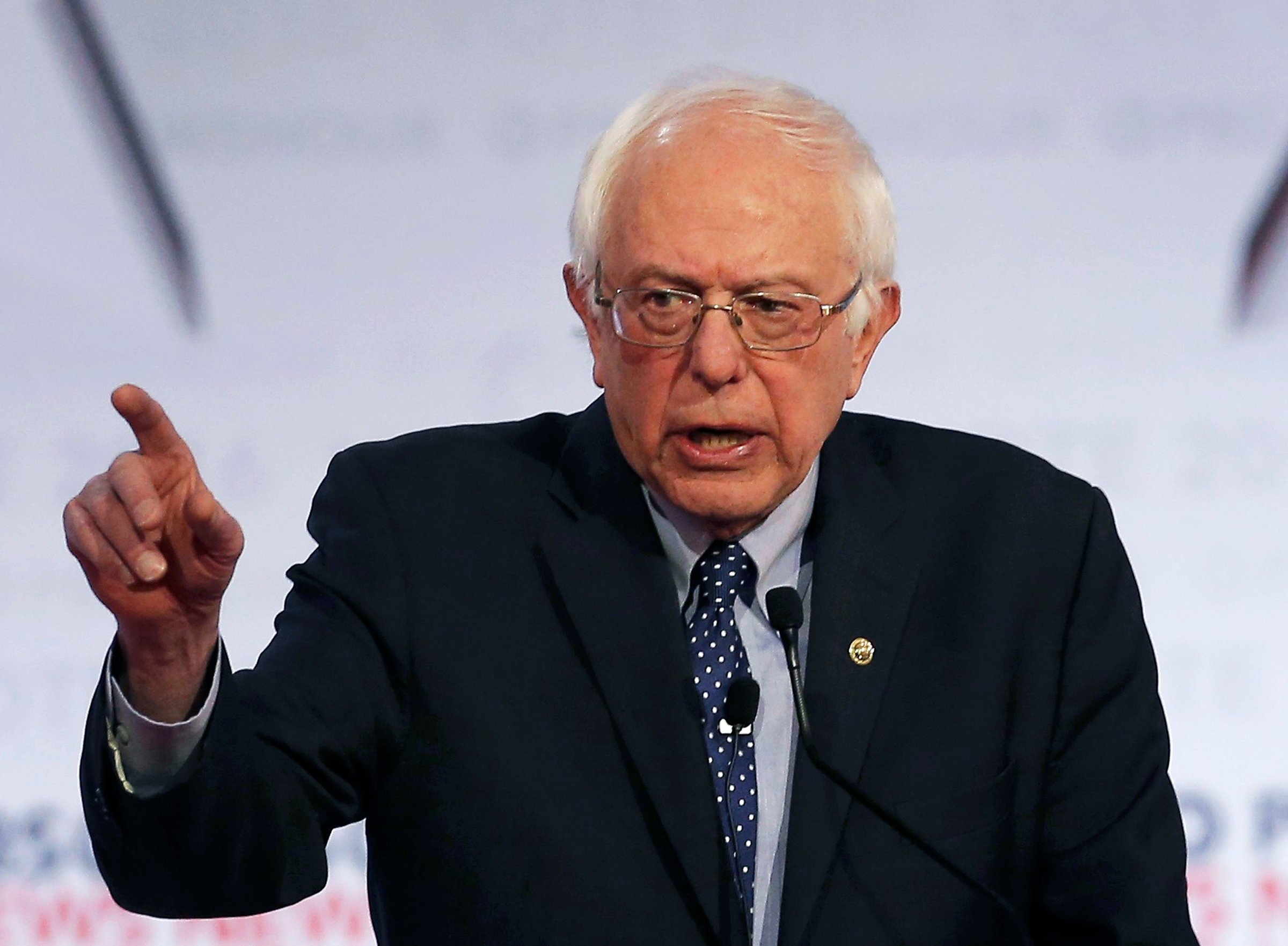
There was nothing surprising about Hillary Clinton’s decision, about 20 minutes into the sixth Democratic debate, to use the phrase “once I am in the White House.” Candidates do that all the time in presidential contests, leading voters on a sort of post-inaugural vision quest. Bernie Sanders made a similar move just days earlier—“as president, I will defend this nation”—when he won the New Hampshire primary.
The shock was what happened next.
“Well, Secretary Clinton, you’re not in the White House yet,” Sanders shot back—a notably acerbic riposte. He said it in his blunt Brooklyn way, with clear hints of condescension, like a teacher telling his student not to get too big for her britches. And as the debate wore on, that tone returned several times.
“Let’s not insult the intelligence of the American people. People aren’t dumb,” he chastised, after Clinton argued that a politician could take contributions from Wall Street and not do the donor’s bidding. “Why in God’s name does Wall Street make huge campaign contributions? I guess just for the fun of it. They want to throw money around.” Feel the Bern, as it turns out, may be a more apt hashtag than thought.
When Clinton tried to score points against Sanders for his past criticism of President Obama, he reverted to a similar posture, talking down his nose more than across the stage. “Do senators have the right to disagree with the president?” he asked rhetorically. “Have you ever disagreed with a president? I suspect you may have.”
The takeaway was not that Sanders was more negative or aggressive than Clinton. She consistently found ways to work in prepared attacks against the Vermont Senator, arguing that his policy proposals were flimsy and unrealistic, that he had been insufficiently loyal to President Obama, and that he lacked serious foreign policy advisers.
Rather the contrast was in the way the two candidates composed themselves. While Clinton challenged, Sanders dismissed. While Clinton never broke her steady gaze, Sanders wagged his finger and shook his head in something between disappointment and disgust. Neither candidate was putting on an act. Rather they were demonstrating the different temperaments they bring to their task.
Sanders has accused Clinton of representing Establishment politics. At minimum, that description fits her demeanor. While she can be cutting and fierce, she has been shaped by years on the international stage, never losing control, or speaking with a tone of disrespect for her opponent. Sanders, by contrast, has spent a lifetime on the outside, hurling rocks at established power centers. His posture is one of disdain and impatience, blunt bluster and truth telling. He rails, while she declares. She is guarded, and he has no patience for filtering his thoughts.
That may be just what the Democratic Party is looking for, if not the nation, in this year of national dismay and anger. But as Sanders rises closer to the job he seeks, he will have to test his unconventional approach, born of a life on the edges of the political conversation, on bigger and bigger stages. Like Republican frontrunner Donald Trump, Sanders does not speak like the presidents of the recent past. Once he is in the White House, it could be quite a ride, though as he noted, he’s not there yet.
More Must-Reads From TIME
- The 100 Most Influential People of 2024
- How Far Trump Would Go
- Scenes From Pro-Palestinian Encampments Across U.S. Universities
- Saving Seconds Is Better Than Hours
- Why Your Breakfast Should Start with a Vegetable
- 6 Compliments That Land Every Time
- Welcome to the Golden Age of Ryan Gosling
- Want Weekly Recs on What to Watch, Read, and More? Sign Up for Worth Your Time
Contact us at letters@time.com